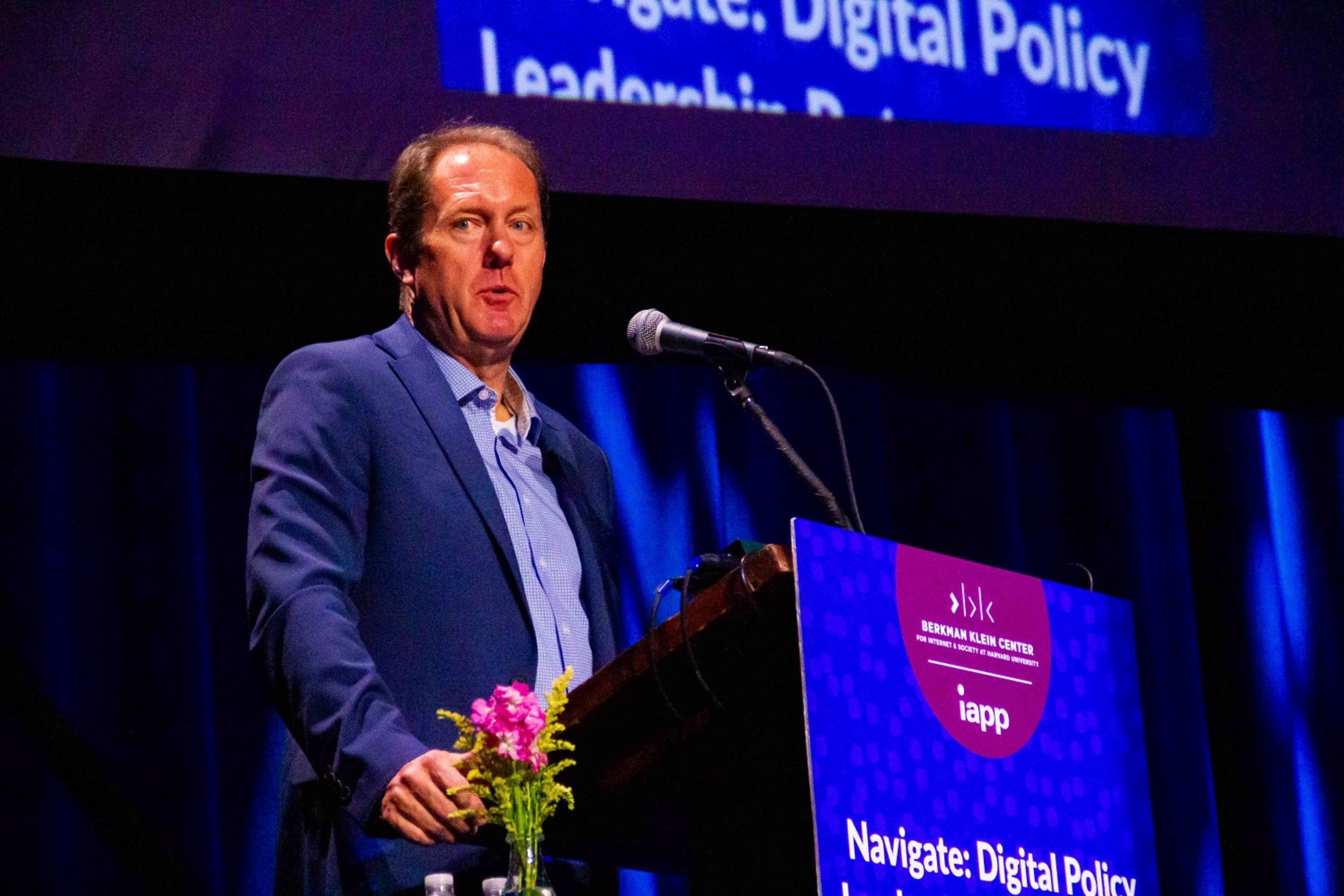Navigate 2025: DOJ's antitrust unit zeroes in on consumer protection, innovation


Published:
Contributors:
Lexie White
Staff Writer
IAPP
Monopolization is a top concern in a fast-growing U.S. digital economy, notably due to mass data collection and secondary use, as well as artificial intelligence development. The expansion of digital markets and services has sparked a wave of calls for antitrust enforcement to help maintain widespread competition and equal opportunity.
At the IAPP and Berkman Klein Center For Internet and Society's Digital Policy Leadership Retreat 2025, U.S. Department of Justice Principal Deputy Assistant Attorney General Roger Alford indicated the DOJ has its sights set on promoting innovation across industries, but it will not come at the cost of strong consumer protection.
"Consumer welfare rises when companies innovate, and new technologies disrupt incumbent technologies,” Alford told retreat attendees in his keynote remarks. "The answer was not to abandon antitrust in digital markets, or to abandon consumer welfare. The answer was to recognize the many dimensions of the competitive process that maximizes consumer welfare online."
U.S. government agency's are attempting to combat issues through lawsuits against several Big Tech companies, including Google, Apple and Meta. According to Alford, those efforts work to clarify consumer protection priorities that have fallen by the wayside with industry leaders and the consumers themselves.
"(We) have become so used to smokestack industries that many assume consumer welfare should always be measured in the prices and outputs of the goods that rolled off the assembly line," Alford said. "Privacy, attention, choice, innovation, all of those were half results in traditional analysis. And so, some suggested that there could be no antitrust enforcement in many digital markets because traditional measures of consumer welfare were difficult to apply.”
Enforcement outlook
Alford indicated the DOJ antitrust unit will prioritize a "clear vision for robust antitrust enforcement" over the next four years. Among the top objectives in that vision is to foster more organizational transparency.
"Our paramount focus will be to put consumer welfare first, accounting for the wide range of harms and benefits to consumers and workers that can arise in modern markets," Alford said.
Specifically with privacy, Alford indicated consumers are paying for digital services "in time, attention and data" and "consumers benefit when their privacy is protected."
He noted increased competition in the digital market will allow consumers more privacy-protective choices. Challenging companies and pushing for fair competition "brings better quality, improved privacy options, lower advertising loads, greater data portability, more choice, and increased innovations."
Despite concerns around how potential DOJ intervention in proposed mergers might interfere with companies' AI innovation plans, the antitrust division approaches enforcement work with a consumer-first agenda.
"Regardless of the digital sector, we at the DOJ will follow the facts and apply the law in connection with algorithmic pricing and potential collusion," Alford said. "These issues provide an opportunity for our enforcers to engage critically with the practical realities of how complex technologies are affecting Americans’ lives today and in the future."
The EU has a similar consumer-driven approach to antitrust enforcement under the Digital Markets Act and the Digital Services Act. Apple and Meta were fined a combined 700 million euros under the DMA, including a 200 million-euro penalty against Meta's highly-debated pay-or-consent practices, charging EU users for ad-free services.
The White House has argued the DMA and DSA are burdensome and means to target U.S. companies. In February, U.S. Vice President JD Vance criticized the burdens raised by the EU digital rulebook, making clear the U.S. "cannot and will not accept" other nations "tightening the screws" on U.S. tech companies.
With ongoing EU enforcement, Alford said, "As long as the cases are being brought against those U.S. companies on merit because it's affecting them in their markets, not in our market in the United States, in a non-discriminatory way, then that is permissible."
Ongoing antitrust cases
The DOJ filed a landmark antitrust lawsuit against Google in 2023 after the agency claimed the company's online search and advertising technology business each constituted a monopoly in violation of the Sherman Antitrust Act.
The U.S. District Court for the Eastern District of Virginia ruled in favor of the DOJ 17 April, claiming Google "harmed Google's publishing customers, the competitive process, and, ultimately, consumers of information on the open web." Final arguments regarding potential remedies to dissolve the dominance were heard 30 May.
Alford told retreat attendees the Google ruling represents a "bipartisan consensus in favor of rigorous antitrust enforcement" and recognizes the company has "abused its monopoly status by controlling how digital advertisements are placed on the free and open Internet."
DOJ Assistant Attorney General Gail Slater noted if the company's practices are not remedied "it will control much of the internet for the next decade and not just in internet search, but in new technologies like artificial intelligence."
The agency previously sued Google in 2020 due to its search engines’ alleged monopolization. The DOJ's lawsuit proposed the company request consumers consent to make Google’s search engine as a default on Google Pixel devices. Google argued the proposal would "result in unprecedented government overreach that would harm American consumers, developers, and small businesses — and jeopardize America's global economic and technological leadership at precisely the moment it’s needed most."
Alongside its case against Google, the DOJ announced a USD14 million settlement in its case targeting the merger of Hewlett Packard Enterprises’ acquisition of Juniper Networks. The settlement will require the company to license Junipers' Must AI for its wireless network services.
"The American way of winning the global economic competition is with strong competition in our domestic firms that make our companies stronger to compete abroad," Alford said.
Lexie White is a staff writer for the IAPP.

This content is eligible for Continuing Professional Education credits. Please self-submit according to CPE policy guidelines.
Submit for CPEs


